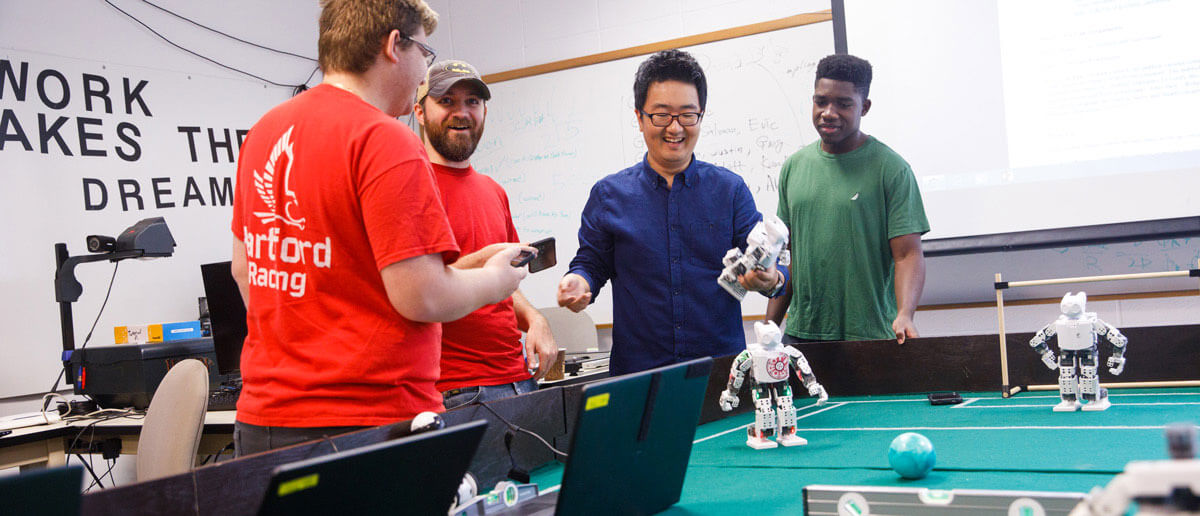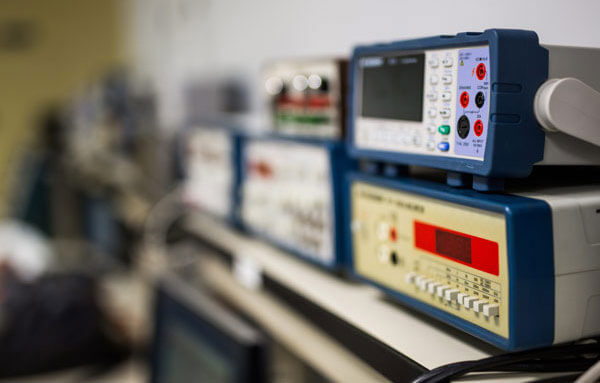Electrical and computer engineering graduate students focus their studies in the following areas:
- Computer Systems
- Communications/Signal Processing
- Automation and Controls
- Electric Power
- Power Electronics
- System Simulation
- Network/Cyber-Physical Security
- Robotics
- Embedded Applications
Be prepared to solve more sophisticated design problems that will help you advance in your engineering career. Work with faculty with strong expertise offering courses in VHDL, embedded microprocessors, and cyber-physical security. Small class sizes promote interaction with the faculty and keep you up to date with the most recent technology. This is combined with research projects for you to become an expert in your chosen field.

